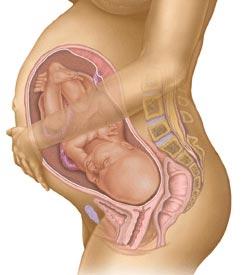“What About Child Birth for Patients with Bicuspid Aortic Valves and Dilated Roots?” Asks Elaine
By Adam Pick on July 24, 2014
I recently received a great question from Elaine about child birth, heart valve disorders and dilated aortic roots. In her email, Elaine writes, “Hi Adam – I have a bicuspid aortic valve and a dilated root of 4.2cm. I am currently 29 weeks pregnant. I was wondering if anyone else has a diagnosis similar to mine and if they were able to deliver naturally instead of C-section?”

Elaine asks a great question. I wanted to get her an expert response, so I contacted Dr. James Wudel, who is a leading heart valve surgeon at Sanford Health in Sioux Falls, South Dakota. Dr. Wudel, who is a very nice guy, specializes in minimally invasive and transcatheter procedures like TAVR and the MitraClip.
In his response, Dr. Wudel first addressed Elaine’s diagnosis of a bicuspid aortic valve:
A bicuspid aortic valve has been estimated to occur in approximately 2 percent of the general population. A bicuspid aortic valve may work normally or may undergo narrowing (stenosis) and/or leakage(regurgitation). Women with a bicuspid aortic valve should be counseled regarding possible effects on the fetus, potential complications of a poorly functioning valve, and, in your case, abnormalities of your aorta.

Dr. James Wudel – Heart Surgeon
Then, Dr. Wudel discussed the potential issues that a bicuspid aortic valve may cause for a pregnant woman:
Patients with a bicuspid aortic valve have an inherent abnormality of the tissue of the ascending aorta which predisposes to aortic enlargement and spontaneous aortic dissection. Pregnancy associated changes may promote and accelerate aortic enlargement and/or dissection. Therefore, once aortic dilation has been identified, close monitoring and measurement of the aorta is important throughout your pregnancy, in addition to optimal prenatal care.
Lastly, Dr. Wudel considered Elaine’s question about child birth approaches:
Given the overall frequency of BAV in the general population, many women with a bicuspid aortic valve undergo vaginal delivery uneventfully. The mode of delivery depends on the severity of any valve dysfunction, the amount of aortic dilation, and your overall condition. This determination is best made by an expert team of obstetricians, cardiologists, and anesthesiologists at a facility skilled in high risk heart disease.
I hope that helped Elaine (and maybe you) learn more about pregnancy, child birth, bicuspid aortic valves and dilated aortic roots. Many thanks to Elaine for her question and a special thanks to Dr. James Wudel for sharing his clinical experience and research with our patient community.
Keep on tickin!
Adam












